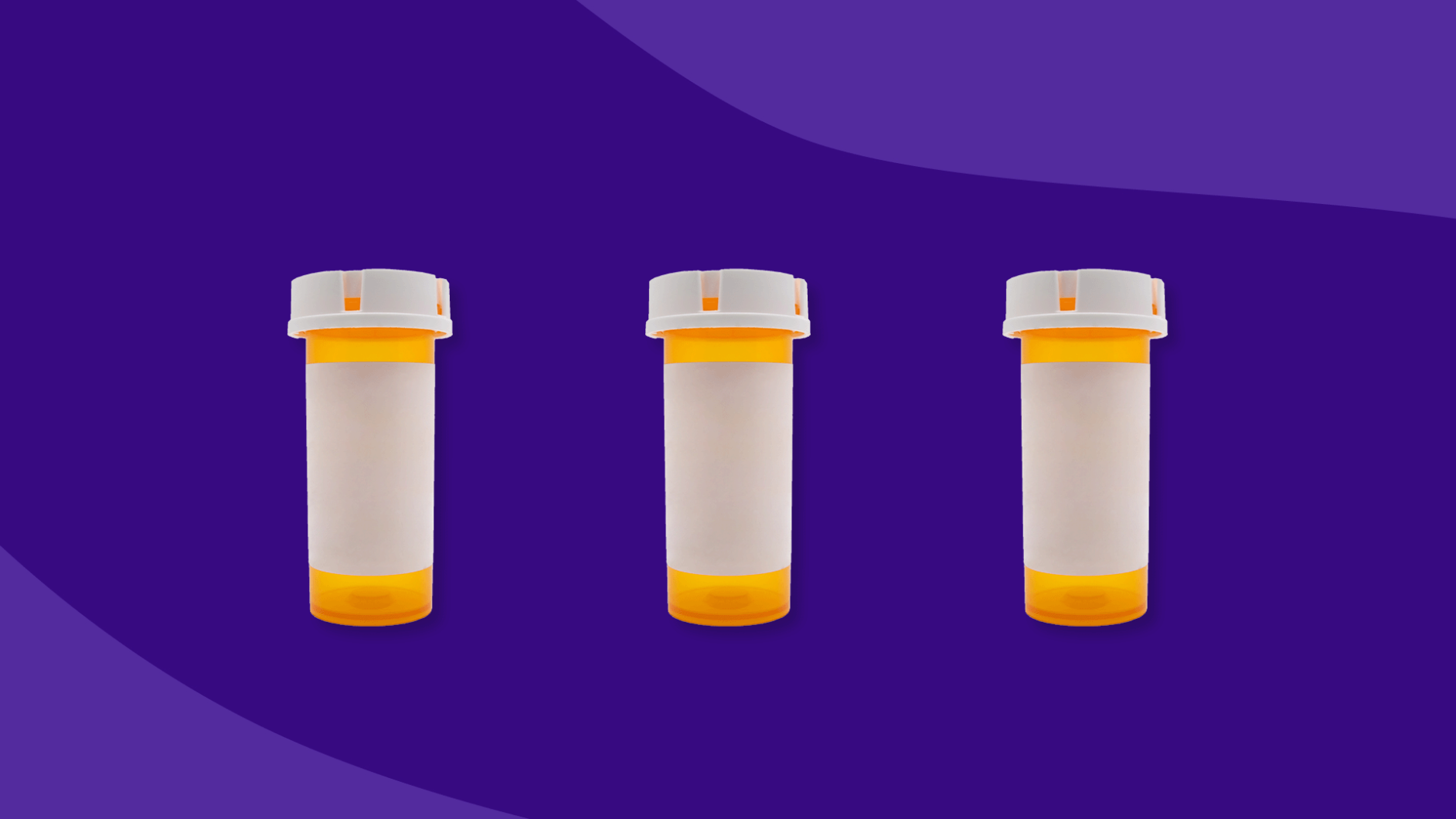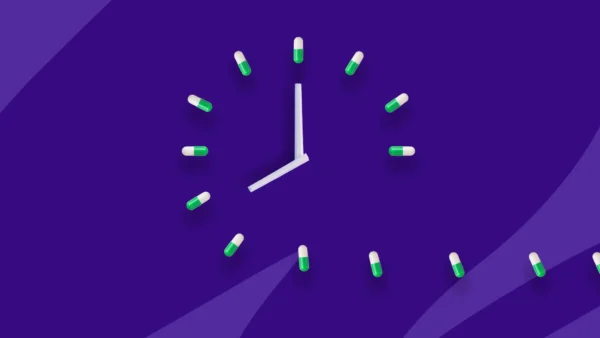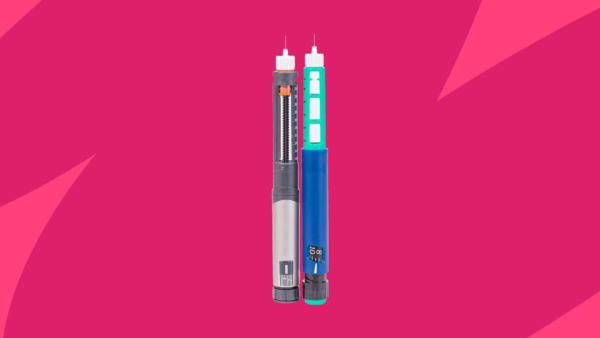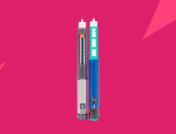Compare Auryxia alternatives | Velphoro | Fosrenol | Calphron | Renagel | Renvela | Natural alternatives | How to switch meds
Auryxia is a prescription drug approved by the Food and Drug Administration (FDA) for people with chronic kidney disease (CKD). Healthy kidneys filter waste products and balance minerals, such as phosphorus, in the blood. People with CKD are unable to remove excess phosphorus from the blood, which can lead to hyperphosphatemia or increased serum phosphate levels. Auryxia is a phosphate binder that helps remove excess phosphorus from the blood in people with CKD.
Because it contains a form of iron called ferric citrate, Auryxia is also used to treat iron deficiency anemia, a condition caused by low iron levels. Auryxia can be used to replace iron in people with CKD who are not on dialysis. However, it is not for people with high levels of iron in their blood, such as those with hemochromatosis, as Auryxia can increase hemoglobin and iron levels in the body.
Although Auryxia can be an effective medication for many people with CKD, it may not be the best option for some. In addition to having restrictions for certain people, it may cause unpleasant side effects, such as diarrhea, constipation, and an upset stomach. Auryxia can also be expensive for some people, as there is no generic version available. Other treatment options are available, depending on your overall condition.
Continue reading to learn more about Auryxia alternatives, how they work, and whether they might be a good option to discuss with your healthcare provider.
What can I take in place of Auryxia?
Auryxia can be a poor option for some people due to adverse effects, high costs, conditions like iron overload syndrome, and potential drug interactions with drugs like doxycycline and ciprofloxacin. Some people may struggle with the number of Auryxia pills that must be taken. For others, swallowing tablets can be difficult, which can be a problem as Auryxia also needs to be swallowed whole. Chewing or crushing the tablets can cause discoloration of the teeth and mouth.
Fortunately, there are various alternatives to Auryxia that are approved to treat hyperphosphatemia. The main types of phosphate binders include calcium-based binders, calcium-free binders, and aluminum-based binders.
Calcium-based binders
- Tums (calcium carbonate)
- PhosLo (calcium acetate)
Calcium-free binders
- Auryxia (ferric citrate)
- Velphoro (sucroferric oxyhydroxide)
- Fosrenol (lanthanum carbonate)
- Renagel (sevelamer hydrochloride)
- Renvela (sevelamer carbonate)
Aluminum-based binders
- Alternagel (aluminum hydroxide)
Phosphate binders can vary based on cost, dosage, and potential side effects. Brand and generic versions may be available in different dosage forms. Drugs may also differ in their specific use for individuals on dialysis who have CKD or end-stage renal disease.
The table below includes different prescription medications that are common alternatives to Auryxia.
Compare Auryxia alternatives |
|||
|---|---|---|---|
| Drug name | Uses | Dosage for hyperphosphatemia | Savings options |
| Auryxia (ferric citrate) | Hyperphosphatemia in patients with CKD on dialysis
Iron-deficiency anemia in patients with CKD not on dialysis |
2 tablets of 210 mg (equivalent to 1 g ferric citrate) 3 times daily with meals. Dose may be increased by 1 to 2 tablets in 1-week intervals. | Auryxia coupons |
| Velphoro (sucroferric oxyhydroxide) | Hyperphosphatemia in patients with CKD on dialysis | 1 tablet 3 times daily with meals. Dose may be increased by 1 tablet in 1-week intervals. | Velphoro coupons |
| Fosrenol (lanthanum carbonate) | Hyperphosphatemia in patients with end-stage renal disease | 1,500 mg per day in divided doses. Dose may be increased every 2 to 3 weeks. | Fosrenol coupons |
| Calphron (calcium acetate) | Hyperphosphatemia in patients with CKD on dialysis | 1 to 3 tablets with each meal. | Calphron coupons |
| Renagel (sevelamer hydrochloride) | Hyperphosphatemia in patients with CKD on dialysis | 800 or 1600 mg 3 times daily with meals | Renagel coupons |
| Renvela (sevelamer carbonate) | Hyperphosphatemia in patients with CKD on dialysis | 800 or 1600 mg 3 times daily with meals | Renvela coupons |
| Phoslyra (calcium acetate) | Hyperphosphatemia in patients with CKD on dialysis | 10 mL with each meal. Dose may be increased every 2 to 3 weeks. | Phoslyra coupons |
| Lanthanum carbonate | Hyperphosphatemia in patients with end-stage renal disease | 1,500 mg per day in divided doses. Dose may be increased every 2 to 3 weeks. | Lanthanum carbonate coupons |
| Sevelamer carbonate | Hyperphosphatemia in patients with CKD on dialysis | 800 or 1600 mg 3 times daily with meals | Sevelamer carbonate coupons |
Other alternatives to Auryxia
- PhosLo (calcium acetate)
- Alternagel (aluminum hydroxide)
- Eliphos (calcium acetate)
Top 5 Auryxia alternatives
The following are some of the most common alternatives to Auryxia.
1. Velphoro (sucroferric oxyhydroxide)
Velphoro is a phosphate binder indicated for reducing serum phosphorus levels in people with CKD who are dialysis patients. It is available as a 500 mg chewable tablet that contains sucroferric oxyhydroxide, an iron-based active ingredient like the one in Auryxia. It may be more suitable than Auryxia for people who have trouble swallowing tablets.
Common side effects include diarrhea, darkening of stools, nausea, and increased potassium levels. For people with hemochromatosis, peritonitis, stomach problems, or liver disease, Velphoro is not recommended.
2. Fosrenol (lanthanum carbonate)
Fosrenol is a phosphate binder that contains lanthanum carbonate. It is used to treat high phosphorus levels in people with end-stage renal disease. Fosrenol is a brand-name medication that is available as a chewable tablet and an oral powder. A generic version of Fosrenol chewable tablets is available, which may be cheaper than brand-name versions.
Common side effects of Fosrenol are nausea, vomiting, constipation, diarrhea, and stomach pain. People with stomach or intestinal disorders may need to avoid Fosrenol due to the risk of gastrointestinal obstruction or perforation.
3. Calphron (calcium acetate)
Calphron contains calcium acetate, which can help reduce the amount of phosphorus in the blood. It is available over the counter as a dietary supplement, which may be more affordable than brand-name alternatives. Calcium acetate is also available as a prescription drug that is known by different brand names, such as Eliphos, Phosylra, and PhosLo. Different dosage forms of calcium acetate are available, including capsules, tablets, and oral solutions. Like other phosphate binders, calcium acetate is taken with each meal.
Side effects experienced with calcium acetate include diarrhea, constipation, nausea, and vomiting. Calcium acetate is not recommended as a calcium-based binder in people who are taking other calcium supplements or who have hypercalcemia or high calcium levels.
4. Renagel (sevelamer hydrochloride)
Renagel is a brand-name prescription drug used to control phosphorus levels in people with CKD who are on dialysis. It contains sevelamer hydrochloride and is available as an 800 mg tablet. It is recommended to take one or two oral tablets three times per day with meals. Renagel is available as a generic medication that may be cheaper than brand-name alternatives.
Common side effects of Renagel are nausea, indigestion, diarrhea, constipation, itching, fatigue, and joint pain. Renagel may also cause problems with swallowing, stomach or intestinal ulcers, inflammation of the colon, or bowel obstruction, in rare cases. People with known bowel obstructions should avoid taking Renagel.
5. Renvela (sevelamer carbonate)
Renvela is a brand-name prescription drug used to treat adults and pediatric patients aged six years or older with CKD who are on dialysis. It contains sevelamer carbonate and is available in two formulations: an oral tablet or powder. The usual starting dosage of Renvela is 800 or 1,600 mg taken three times daily with meals. Sevelamer Carbonate is available as a generic alternative to Renvela.
Common side effects of Renvela include nausea, vomiting, diarrhea, indigestion, stomach pain, constipation, and gas. Renvela has been reported to cause problems with swallowing, ulcers, inflammation of the colon, and bowel perforations. It is not recommended for people with bowel obstruction.
Natural alternatives to Auryxia
Certain supplements, such as vitamin B3 or niacin, may be used as alternatives to phosphate binders like Auryxia. Clinical trials have shown that niacin can decrease phosphorus absorption in the intestines and may be a safe, low-cost alternative to phosphate binders. Other studies show that niacin and related compounds can be used to treat abnormal cholesterol levels in addition to high phosphorus levels in people with CKD. Keep in mind that most supplements are not FDA approved.
Calcium carbonate supplements, such as Os-Cal and Tums, can be purchased over the counter to reduce phosphate levels. However, calcium carbonate must be taken in large amounts to reduce phosphorus levels effectively. Large amounts of calcium carbonate can increase the risk of hypercalcemia, or high calcium levels, which may increase the risk of heart problems if these levels reach above the normal range.
Aluminum hydroxide and magnesium are available without a prescription and may be used to treat hyperphosphatemia in some cases. However, they are not recommended for long-term use for CKD due to potential toxic effects. Consult a healthcare provider for medical advice before considering any supplements for your health condition.
Diet is an important factor in the treatment of hyperphosphatemia because much of the phosphorus in the blood comes from food sources. Therefore, a healthcare provider or dietitian may recommend a diet low in phosphorus in addition to medication.
Many foods contain some amount of phosphorus, including fast foods, frozen meats, cheeses, and certain beverages like soda, beer, and wine. Skip the foods containing phosphorus ingredients, such as monopotassium phosphate, calcium phosphate, and disodium phosphate. Consult a healthcare provider or dietitian for advice on what to eat with CKD.
How to switch to an Auryxia alternative
You may be recommended a different medication if your phosphorus levels remain uncontrolled, you experience serious side effects, or you’re having trouble with the dosage form. When switching medications, here are three things to consider:
1. Before stopping any prescription medications, such as Auryxia, consult your healthcare provider. They can recommend alternative phosphate binders that are best suited for you. Stopping medication without medical guidance could lead to serious health problems.
2. Tell your healthcare provider about any medical conditions or other medications you may be taking before starting a new medication. Some medications may need to be avoided in people with certain medical conditions or who are taking certain medications, including prescription drugs, over-the-counter medicines, and herbal supplements.
3. If cost concerns you, make sure you know your options for savings on medications, whether through insurance or prescription discount cards. You can search the SingleCare website for prescription discount cards and more information about your medications and participating pharmacy locations.











